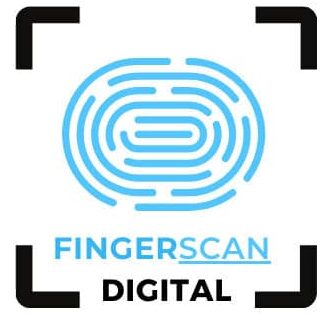Introduction for Bank Notary Services
Notarization is a critical step in legal and financial transactions, ensuring that documents are genuine and legally binding. It’s no surprise that many people seek reliable notary services when they need to validate important documents. Fortunately, a convenient and trusted solution is often right in your neighborhood: bank notary services.
In this in-depth guide, we will explore the world of bank notary services nearby. From understanding the role of a notary public to finding the nearest bank offering these services, scheduling appointments, and navigating the notarization process, this comprehensive resource will equip you with all the information you need.
Demystifying the Notary Public

To begin our journey into the realm of bank notary services, it’s essential to understand the role and responsibilities of a notary public.
A notary public is a public officer appointed by the state government to act as an impartial witness to the signing of various legal documents. These documents can range from real estate deeds, power of attorney forms, wills, affidavits, and more. The primary purpose of a notary is to verify the identity of the signers and confirm that they are voluntarily and knowingly entering into the agreement.
Why Choose Bank Notary Services?
Bank notary services have gained popularity and trust for several compelling reasons:
a. Convenience:
Banks are widespread and easily accessible, making it a convenient option for individuals seeking notarization services. Most banks have extended business hours, allowing flexibility for customers.
b. Trustworthiness:
Banks are institutions built on trust and reliability. This extends to their notary services, assuring clients that their documents are in safe hands.
c. Cost-Effective:
Many banks offer notary services for free or at a nominal fee, especially for their customers. This affordability can be a significant advantage, especially for frequent notary needs.
d. Knowledgeable Notaries:
Bank notaries typically undergo extensive training and have experience notarizing a wide range of documents. This expertise ensures that your documents are notarized correctly.
Finding a Bank Notary Near You
Once you’ve decided to utilize bank notary services, the next step is to locate a bank with notary services nearby. Here are some methods to help you with your search:
a. Online Search:
Start with a quick online search using search engines like Google or Bing. You can also check your bank’s official website to find information about branches that offer notary services.
b. Phone Inquiry:
Reach out to your bank’s customer service or contact a specific branch to inquire about the availability of notary services and their hours of operation.
c. Mobile Apps:
Some banks offer mobile apps that include branch locators. You can use these apps to find the nearest branch and check if they provide notary services.
Scheduling an Appointment
Once you’ve identified a bank near you that offers notary services, it’s advisable to schedule an appointment. While some banks may accept walk-in customers, appointments can help minimize wait times and ensure that a notary is available when you need them. Here’s how to go about it:
a. Contact the Bank:
Use the provided contact information to reach out to the bank. Inform them that you need to schedule a notary appointment and inquire about their availability.
b. Confirm Notary Hours:
Ask about the notary’s working hours to ensure they can accommodate your schedule.
c. Provide Details:
The bank may require specific details about the document you need notarized, so be prepared to share this information.
d. Be Punctual:
On the day of your appointment, make sure to arrive on time with all necessary documentation and identification.
What to Bring to the Notary Appointment
To make your notary appointment a smooth process, it’s crucial to come prepared. Here’s a checklist of items to bring:
a. The Document:
Ensure that the document is complete and unsigned. Notarization involves signing the document in the presence of the notary.
b. Valid Identification:
Bring a government-issued photo identification, such as a driver’s license, passport, or state-issued ID. This is to verify your identity.
c. Witnesses (if required):
Some documents, like wills or affidavits, may require witnesses. Confirm in advance if you need to bring witnesses with you.
d. Fees:
While many banks offer notary services for free or at a minimal fee for their customers, it’s essential to inquire about any associated costs.
The Notarization Process
Now that you’ve scheduled your appointment and gathered the necessary documents and identification, let’s delve into the notarization process itself. During your visit to the bank notary, the notary will perform the following tasks:
a. Identity Verification:
The notary will request and examine your identification to confirm that you are the person you claim to be.
b. Affidavit of Willingness:
You will be asked to confirm that you are signing the document willingly and not under duress or coercion.
c. Completing the Notarial Certificate:
The notary will complete the notarial certificate on the document. This certificate typically includes the date of notarization, the notary’s signature, and their official seal or stamp.
d. Recording the Notarization:
In some states, notaries are required to maintain a notary journal or record of all notarizations. Ensure you check with the notary if they will be recording your notarization.
Notary Fees
The cost of notary services at a bank can vary. While many banks offer notary services at no cost or for a minimal fee to their customers, it’s crucial to inquire about any associated fees. Some factors that can affect the cost include your account type, the number of documents being notarized, and the bank’s policies.
Conclusion
Bank notary services nearby provide a convenient, cost-effective, and trustworthy option for notarizing your important documents. Whether you need to notarize a real estate contract, a power of attorney, a will, or any other legal document, your local bank can be your one-stop solution. By following the steps outlined in this comprehensive guide, you can streamline the notarization process and have the peace of mind that your documents are correctly notarized, thus ensuring their legal validity. Bank notaries are trained professionals who take their responsibilities seriously, and their services are designed to simplify your notarization needs, whether you’re a seasoned professional or new to the process. Read more post here



